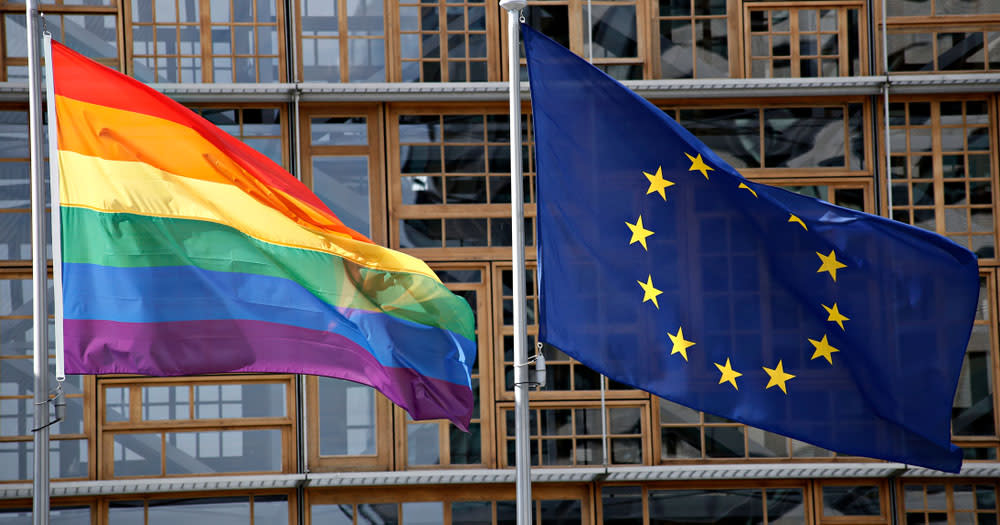Hostile anti-trans politics on the rise in Europe, new research finds

The RESIST project has published new research demonstrating how trans lives and LGBTQ+ activism have become key targets for “anti-gender” politics internationally.
Phase one of the RESIST project, launched on Wednesday, April 24, investigated so-called “anti-gender” rhetoric in parliamentary debates and media coverage in Hungary, Poland, Switzerland and the UK from 2015 to 2022.
The project also conducted in-depth analyses of one major controversy per country, exploring factual narratives, opinion pieces, key actors and organisations, and campaign material.
The phase one report, entitled Anti-Gender Tactics in Europe, provides evidence of several alarming trends in how LGBTQ+ rights are currently being undermined.
It found that the increased “hostile hypervisibility of transgender people” makes them the subject of “relentless ‘debate’ about the legitimacy of their rights and lives”. It also found that trans people are rarely invited to share their own experiences within such debates.
It emerged throughout the study on anti-gender politics that trans identities “are framed as the product of ideology and activism, and this is used to drive the delegitimisation of LGBTIQ+ activism.”
The report suggests that while the “marginalisation and mistreatment of transgender people” is not new, the increased intensity and velocity are. This approach was also found to be “the product of concerted and organised tactical action.”
The key actors in promoting and perpetuating anti-gender politics were found to be primarily “men in the conservative and radical/extreme right in Europe”.
Worryingly, wider media discourse considered to be “the political ‘centre’” also perpetuates the creation of anti-gender politics.
There was also significant evidence of “interactional dynamics between political party agendas, media coverage of anti-gender debates, and anti-gender activists.”
The media and parliamentary analysis was led by the Department of Media Studies, Maynooth University. Professor Gavan Titley, principal investigator of the report, warned, “Our research demonstrates that an intensified attack on LGBTIQ+ identities across Europe is advanced through attacking the very idea of ‘gender’.
“While so-called ‘anti-gender’ politics have been attacking feminism and reproductive rights for decades, this politics is not static, and is always on the look-out for new targets.”
He continued, “A notable shift right now is to try to marginalise any form of LGBTIQ+ visibility as ‘aggressive activism’ that wants to impose minority ideas and values on majority populations. Once you do this, you can declare that you are defending children’s rights, parent’s rights, freedom of speech and even democracy against them.
“Our research is the first transnational study providing in-depth comparison between parliaments, media, and public controversies across a range of countries. While there are important differences across contexts, in every country studied we found evidence of sensationalist and demeaning political attention directed at transgender people.
“These so-called debates are all very recent and driven by clearly identifiable political interests. It is notable that in every context studied, a major national newspaper has taken a lead role in deliberately stoking up a damaging moral panic targeting transgender identities”.
Launched in 2022, the RESIST project is a four-year study co-ordinated by Professor Kath Browne at University College Dublin in collaboration with nine universities and academic research centres across Europe and the UK. It aims to foster queer feminist intersectional resistance against transnational anti-gender politics.
Professor Titley explained the relevance of phase one from an Irish context: “While this stage of our research doesn’t examine Ireland, it’s really important to us to get these results out in Ireland and see how they can be of use to LGBTIQ+ people and groups in resisting the further development of these political strategies and mobilisations here.
“While we see in our research that this kind of anti-gender politics travels and is adapted from context to context, this isn’t inevitable, and it can be disrupted and resisted.”
More information on the project and the full report can be found at https://theresistproject.eu.
The post Hostile anti-trans politics on the rise in Europe, new research finds appeared first on GCN.

 Yahoo News
Yahoo News 
